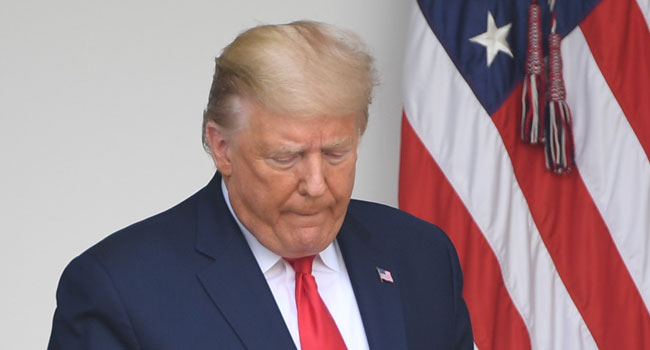Lesotho has been subjected to some of the highest tariff rates in a list unveiled by US President Donald Trump on Wednesday.
The country now faces a 50% import tax on goods brought into the United States, following an announcement that is set to have significant consequences on its economy.
The tariff hike is part of Trump’s strategy to address the US’s substantial trade deficit with other nations. Lesotho, a small southern African nation, primarily exports textiles, including jeans, and diamonds to the US.
The country’s increasing trade with the US is reflected in figures showing that in 2024, US imports from Lesotho reached $237.3 million, while US exports to Lesotho totaled just $2.8 million.
The 50% tariff on Lesotho is part of a broader set of “reciprocal tariffs” Trump has imposed on dozens of countries, including 20 in Africa, with a baseline 10% tariff.
In response, Lesotho’s Trade Minister Mokhethi Shelile has announced plans to send a delegation to Washington to contest the tariffs. He voiced concern over the impact on local businesses, particularly garment factories, which are vital for the country’s economy.
Lesotho has benefited from the African Growth and Opportunity Act (Agoa), a 2000 US initiative that allowed certain African nations to export goods without tariffs. The textile industry, in particular, has flourished under Agoa, with Lesotho producing jeans for American brands like Levi’s and Wrangler.
The garment sector accounts for nearly three-quarters of the country’s exports to the US.
Teboho Kobeli, a Lesotho-based textile manufacturer, described the tariffs as devastating, highlighting that his business, which employs around 2,000 people, may struggle to adapt if demand from the US diminishes. He emphasized the need to explore new markets but stressed that the US remains a crucial trading partner.
Trade expert Colette van der Ven questioned the logic behind the steep tariffs, calling them “ironic” given that they punish Lesotho for benefiting from a program like Agoa.
She noted that the US’s decision to impose such tariffs seems rooted in a broader view on trade fairness, as Trump’s administration seeks to address what it sees as imbalanced trade relationships.
Lesotho isn’t alone in facing new tariffs. Other African countries hit by the tariff hikes include Madagascar (47%), Mauritius (40%), Botswana (37%), and South Africa (30%).
Meanwhile, Nigeria’s exports will be taxed at 14%, and other countries like Kenya, Ghana, Ethiopia, and Tanzania will face the 10% baseline tariff.
Trump’s rhetoric on trade during the announcement emphasized a desire to address unfair practices, calling out countries he believes have exploited the US through trade deficits.
In his words, the tariffs are a response to nations that “treat us badly,” reflecting his administration’s tough stance on global trade.
The move is likely to have wide-reaching consequences for African nations that have long-standing trade ties with the US.
Annabel Bishop, an economist at Investec, warned of the negative impact these tariffs could have on African economies, which may now look to other markets for trade partnerships.


